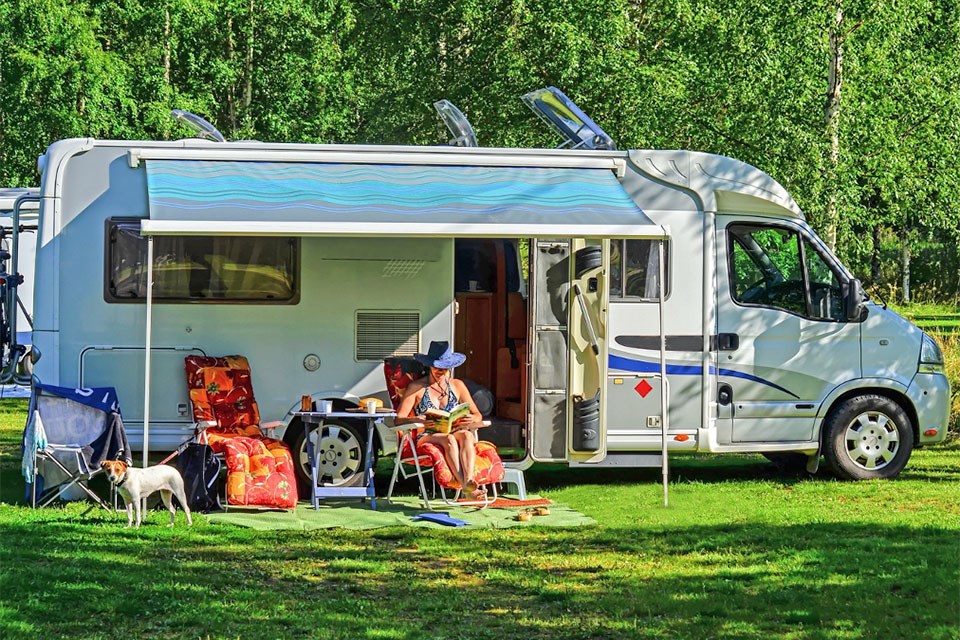Now is the perfect time to revisit your RV insurance. Whether you are looking at buying a new 5th wheel or have had the same insurance for many years, take some time to look at your policy and consider shopping around.
Types of RV Insurance
The type of RV insurance you get depends on the type of RV that you own and what you are using it for. Class A, B, and C RVs require a different type of insurance from travel trailers because motorhomes and camper vans are also vehicles. According to the AMA, tent trailers, 5th wheels, and any style of travel trailer that is towed behind a vehicle do not legally require a separate insurance policy in Alberta, but it is highly recommended.
Those who live in their RVs full-time need full-time insurance. Full-time policies cover your RV like a home and give you protection whether you are parked or on the road. If you use your RV only for trips, you will need less coverage. You may also be able to pause some of your insurance coverage when your unit is parked for the winter.
RV Insurance Can Cover a Wide Range of Possibilities
Just like with home and auto insurance, RV insurance can include a number of add-ons or simply offer basic coverage. Generally, RV insurance can cover the following:
- Structures and accessories
- Contents
- Expenses incurred if damage occurs while away from home, including hotel or RV rental
- Costs like non-refundable campsite deposits
- Personal liability
- Charges from fire departments for responding to a call
Normally, insurance does not cover normal wear and tear, damage from pests, water damage (unless an accident caused the water damage), or natural disasters. It is recommended that RV owners understand their own insurance policies well.
Tips for Buying RV Insurance
Almost every insurance company offers RV insurance, so it pays to take a fresh look at your policy each year to make sure that you are getting the right type of coverage for the best price possible. Keep in mind these few tips when you are browsing insurance policies:
- Your home and auto insurance company might offer some great deals on bundles. Always check with your existing insurance company to see if they can offer you a great price.
- Shop around and get a few quotes to compare, but make sure you are comparing the same type of coverage.
- Talk to your insurance agent or broker in detail about how you use your RV. Let them know how often you use it, what type of contents you keep in it, and where you travel to. Sharing as much accurate information as you can helps them offer you the right type of coverage – you don’t want to be either over or under-insured.
- Don’t forget to talk to your insurance agent or broker about any significant upgrades you have added on to your RV so you are adequately covered in case of an accident.
- Take detailed photos of your RV and contents. These will help in case you need to make a claim.
Having the right type of RV insurance as well as adequate coverage ensures that you are protected in case of an accident. This extra peace of mind allows you to enjoy your time exploring in your RV even more.
 This story was made possible by our Community Partners Program. Thank you RV City for helping to expand local news coverage in Alberta. Learn more.
This story was made possible by our Community Partners Program. Thank you RV City for helping to expand local news coverage in Alberta. Learn more.



